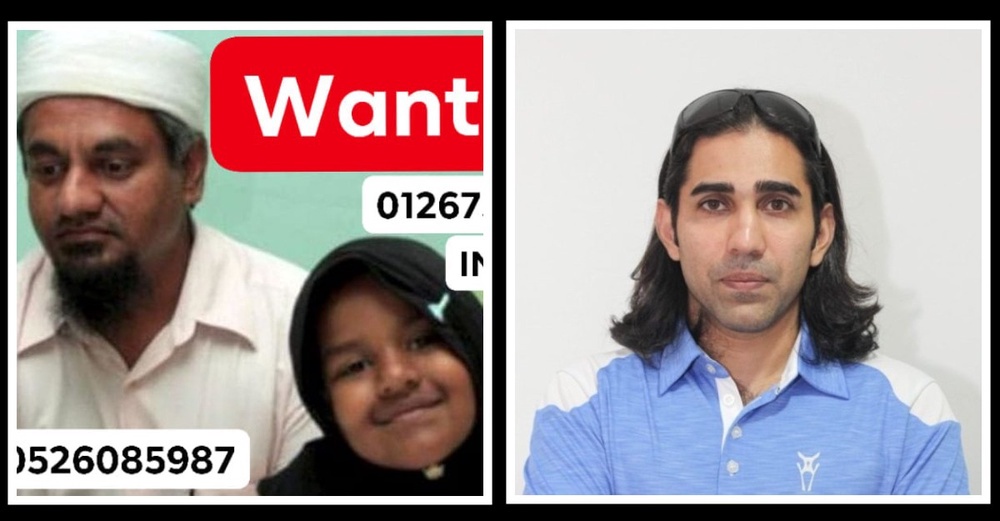
OPINION | From Riduan to Haresh: Two Shocking Police Claims in One Week Raise More Questions Than Answers
28 Nov 2025 • 5:00 PM MYT

TheRealNehruism
An award-winning Newswav creator, Bebas News columnist & ex-FMT columnist

Image credit: Focus Malaysia / Malaysian Gazette
In the span of a few days, Malaysians were confronted with two troubling developments—each involving the police, each involving violence or disappearance, and each culminating in explanations that leave the public uneasy rather than reassured.
Indira Gandhi’s Endless Search Meets a New Twist
Sixteen years after M. Indira Gandhi’s ex-husband, Riduan Abdullah, abducted their youngest child, the case has once again resurfaced—not because of a breakthrough, but because of a new and unsettling theory.
Inspector-General of Police Khalid Ismail suggested that “someone else” may have used Riduan’s identity to receive government aid such as Budi 95 and SARA. It is a claim that raises more questions than answers. If such aid was claimed, why haven’t authorities traced the transactions? Where are the CCTV recordings, the bank verifications, the identity checks that should accompany such financial assistance?
Indira’s lawyer, Rajesh Nagarajan, did not hide his disappointment. He described the IGP’s comments as “deeply troubling,” highlighting that these speculative explanations appear to be filling the gaps left by basic investigative steps that should have been completed long ago.
The Ipoh High Court’s recent decision to order police to broaden their search underscores this deficiency. Despite police citing “18 case managements,” the court found it necessary to remind them that a national fugitive requires a national-level search—not one confined to a single state.
“It confirmed what we have long said – the investigation has been narrow, ineffective and directionless,” Rajesh said .
For context, Riduan had converted their three children to Islam in 2009 without Indira’s consent and sought custody through the shariah court.
Riduan failed to return Prasana, their youngest child, after losing a legal battle over custody and the religious conversion of their children.
On Jan 29, 2018, the Federal Court ruled that the conversions were null and void, and ordered the IGP to arrest Riduan for defying the High Court’s directive to return Prasana.
The Ipoh High Court on Nov 21 ordered the police to widen the search for Riduan, with Justice Norsharidah Awang saying that it should be extended across the entire country.
Despite being a wanted man, it is concerning that a “special travel restriction” on Riduan do not appear in immigration records. After 16 years, this case should be marked by clarity, not confusion. The public is rightfully asking: how is it that Malaysia’s institutions can monitor millions of citizens daily yet remain unable to trace one individual?
The Assault on Haresh Deol and the Puzzle of “Personal Motive”
In a separate incident, veteran journalist Haresh Deol was violently assaulted in Bangsar by three men, one of whom reportedly filmed the assault. The attack drew swift condemnation from organisations such as FAM and PEN Malaysia, who described it as an intimidation attempt against a journalist known for reporting on governance and accountability.
The police, however, have suggested that the assault was motivated by “personal issues.” Haresh himself has firmly rejected this, stating that he has “no personal issues with anyone.” If the victim denies having such conflicts, and the suspect is a stranger to him, the claim of “personal motive” feels incomplete at best.
“I would like to ask: whose personal issue is at play here? I want to reiterate that I do not have personal issues with anyone,” Haresh said during a podcast.
“What are the suspect’s personal issues with me?
“As a journalist, I am supposed to be writing news, not become the news. But what happened was the exact opposite.”
Given Haresh’s long record of investigative reporting—especially on governance issues within Malaysian sports— His recent work includes investigative reporting on the national football team’s naturalisation scandal- the explanation that this attack was purely personal may not sit comfortably with observers. Without transparency, it risks appearing like an effort to steer attention away from potential systemic or institutional implications.
A Shared Thread: Explanations That Obscure Rather Than Clarify
Both cases—though unrelated—share an unfortunate similarity: official explanations that seem to do little to illuminate what truly happened.
In Indira Gandhi’s case, the police appear to be relying on speculative theories rather than concrete investigative findings. In Haresh Deol’s case, the label of “personal motive” feels insufficient, especially when the victim himself refutes it.
In both situations, the public is left with the impression that crucial information is either missing or not being shared. When explanations are vague or contradictory, confidence in institutions inevitably erodes.
The Public Deserves Answers, Not Ambiguity
Indira’s lawyer captured the sentiment succinctly: Malaysians deserve facts, not conjecture.
The disappearance of a child for over a decade, and a violent attack on a journalist, are not matters that should be handled with theories that raise additional questions. They require thorough, transparent, and credible investigations.
Until such clarity is provided, both cases will remain symbols of a deeper concern: when institutions are unable—or unwilling—to offer clear answers, the public is left navigating uncertainty on its own.
No comments:
Post a Comment